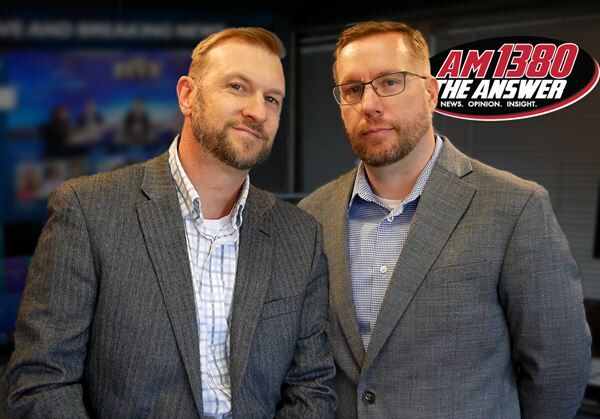When Telling the Truth Isn’t Hate, It's Love
Dr. James Emery White


Audio By Carbonatix
By Dr. James Emery White, Crosswalk.com
Let me lay my cards out on the table:
I believe that truth exists.
I believe that the source of that truth is transcendent.
I believe that hate is real, and that real people can hate.
I believe that hate is wrong.
And one more:
I believe that I can stand for truth and not have it be hateful.
The dominant idea of truth throughout the history of Western thought has been deemed the “correspondence” idea of truth. The idea is simple: If I say, “It is raining,” then either it is raining or it is not. You simply walk outside your door and discover whether my statement corresponds with reality. Of course, its weakness is that not everything can be verified by walking out your door. I might say, “There is a God.” If you walk out your door, will my statement be proven?
However, the greater dynamic of the correspondence theory is, regardless of whether you can validate something, what is true is that which does indeed correspond with reality—regardless of one’s current ability to actually make that correspondence. So, while a Triune God may not be discernible through the empirical method of science, the “correspondence idea” is that the Triune God is true because there is, indeed, a Triune God who exists in reality.
The larger idea is that truth exists and that it stands above human experience. It judges human experience. Truth is, by its very nature, transcendent. It exists independent of our acknowledgment of it, much less our obedience to it. To deny this is to live in a “post-truth” world. That, of course, is precisely our reality. We deny the existence of objective truth itself and make emotion our authority.
When emotion rules, then stands for truth – if they cut against someone’s emotions – are seen as attacks on them as persons. We conflate relational acceptance with moral affirmation. If I do not affirm something as true or moral, then it is seen as relational rejection. Or worse, bigotry and prejudice. Or hate.
Webster’s Dictionary defines hate as follows: “to have strong dislike or ill will for; loathe.” It goes further and says that “hate implies a feeling of great dislike or aversion, and, with persons as the object, connotes the bearing of malice.” This is what makes the term “hater,” when applied to anyone who disapproves of something, so egregious. It’s like crying, “Murderer!” when anyone expresses frustration. But it is culturally effective. It brings all the rightful emotions against “hatred” to bear on a critic. It puts them into a category that is easily dismissed instead of earnestly engaged.
What we need to do is dust off the word “admonishment.” The apostle Paul used it in a very important teaching: “Let the message of Christ dwell among you richly as you teach and admonish one another with all wisdom” (Colossians 3:16, NIV). To admonish is to address, to upbraid, to confront, to challenge, to stir.
I don’t hate someone just because I might proclaim truth and, as a result, admonish them. Actually, it might mean that I’m not a “hater” at all, but rather a “lover.” I’m so rooting for them, believing in them, wanting them to succeed, that when I see them walking toward a ditch, I’m going to say something.
Penn Jillette is the talkative half of Penn and Teller, the Las Vegas comedy-illusion team. Penn is an outspoken atheist. But he posted a video blog on his personal website a few years back about a man who gave him a Bible. Was that hateful? Not to Penn.
I’ve always said that I don’t respect people who don’t proselytize. I don’t respect that at all. If you believe that there is a heaven and hell and that people could be going to hell or not getting eternal life or whatever, and you think that, well, it’s not really worth telling them this because it would make it socially awkward.... How much do you have to hate somebody to not proselytize? How much do you have to hate somebody to believe that everlasting life is possible and not tell them that?
Without a doubt, Christians (and non-Christians) have expressed their views in ways that have felt hateful. That is not only reprehensible but also sad. So let’s be clear: You can stand for truth and not have it be hate. It can actually be love.
James Emery White
Sources
Penn Jillette, “Penn Says: A Gift of a Bible,” Crackle, December 8, 2008, watch online.
Photo Credit: ©iStock/Getty Images Plus/sticker2you
The views expressed in this commentary do not necessarily reflect those of CrosswalkHeadlines.
James Emery White is the founding and senior pastor of Mecklenburg Community Church in Charlotte, NC, and a former professor of theology and culture at Gordon-Conwell Theological Seminary, where he also served as their fourth president. His latest book, Hybrid Church: Rethinking the Church for a Post-Christian Digital Age, is now available on Amazon or from your favorite bookseller. To enjoy a free subscription to the Church & Culture blog, visit churchandculture.org where you can view past blogs in our archive, read the latest church and culture news from around the world, and listen to the Church & Culture Podcast. Follow Dr. White on X, Facebook and Instagram at @JamesEmeryWhite.







